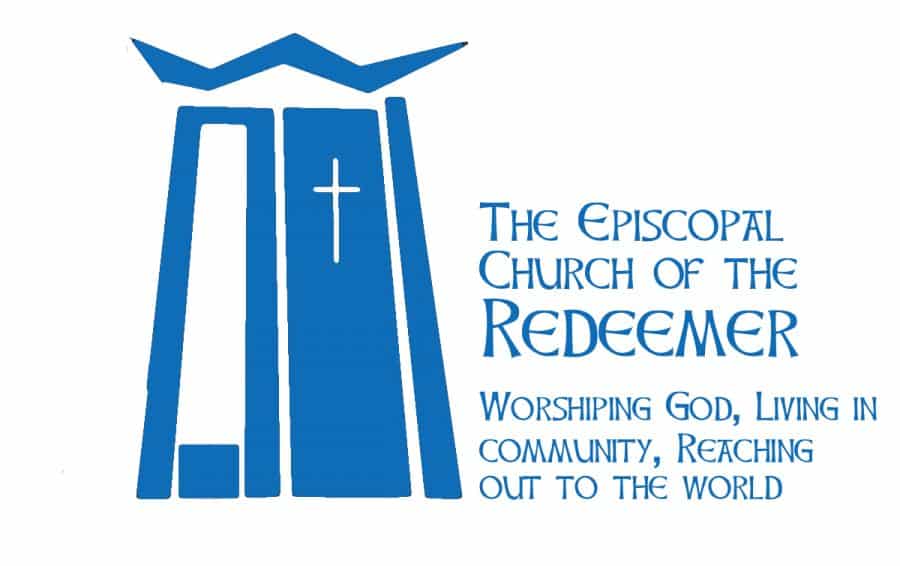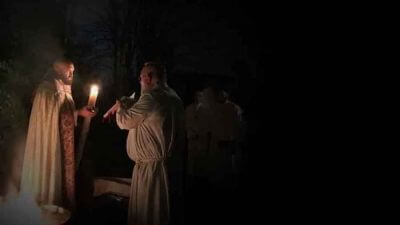[Episcopal News Service] A churchwide panel has concluded that exclusionary policies in Diocese of Florida limited which clergy and lay leaders were eligible to vote on a new bishop and “cast doubt on the integrity of the election process” — placing part of the blame on a pattern of anti-LGBTQ+ discrimination that spanned outgoing Bishop John Howard’s nearly 20 years leading the Jacksonville-based diocese.
Court of Review report
The conclusions are outlined in a 33-page report and 153 additional pages of supporting exhibits that were compiled by The Episcopal Church’s Court of Review after it investigated five objections to the diocese’s November 19, 2022, election of the Rev. Charlie Holt as bishop coadjutor. It was the second such election – both won by Holt and both disputed – to determine who will succeed Howard when he retires later this year.
The 14-member panel of the Court of Review declined to affirm three of those objections, saying there was no evidence that the outcome of Florida’s second election was affected by how the delegates present were counted, the timing of the election or the diocese’s decision to hire Holt after his previous election as bishop coadjutor in May 2022 was invalidated.
Instead, the investigation found that “multiple clergy who were otherwise entitled to vote in the election were denied that right” because of what was described as “a pattern and practice of LGBTQ clergy and those who opposed the bishop’s stated views not being treated equally with similarly situated clergy.” The Court of Review separately concluded that some “duly selected lay delegates” were denied voice and vote in the special election.
Although the Court of Review’s conclusions are not binding, they could have a direct effect on whether Holt becomes bishop. The Diocese of Florida’s next canonical step is to seek and receive consent to its election from a majority of bishops with jurisdiction and diocesan standing committees across The Episcopal Church, and the Court of Review’s report questioning the legitimacy of Florida’s roster of delegates would accompany such consent requests.
Diocese of Florida’s response
The Florida Standing Committee announced the Court of Review’s conclusions in an email to the diocese at 4 p.m. February 17, with a link to the full document. It accused the Court of Review president of prematurely releasing the report to the wider church in “a clear violation of the canon law that outlines the process which she oversees.” The standing committee’s email, without addressing the specific allegations contained in the report, also accused the Court of Review of “ranging far beyond its mandate” in compiling “a number of anonymous allegations – reported so vaguely they cannot be independently verified.”
When asked for clarification on how canons were violated, the standing committee said in a written statement to Episcopal News Service that allegations against a sitting bishop “are not properly adjudicated under the Title III canons, which are specifically about objections to the election process.”
The standing committee said in its February 17 message that it was preparing an extended response “as we seek the consent of standing committees and bishops with jurisdiction to the election of the Rev. Charlie Holt as our bishop coadjutor.”
“All of your diocesan leaders have sought to comply with the requests of the court at every step. Yet the court appears to have sought to ensure the failure of our legitimate election by soliciting anonymous witnesses and unfounded and undated allegations, and showing a persistent lack of regard for due process. In our full response, we will detail for you our concerns about the process, and why it presents a danger to every bishop and diocese in the Episcopal Church.”
Report was released early by mistake
Laura Russell, president of the Court of Review and an attorney and lay leader from the Diocese of Newark, responded to an ENS inquiry by saying the court had mistakenly posted the report online based on procedural confusion, “under the impression that the findings had been circulated more broadly by the presiding bishop’s office.”
“Once the court learned it had not yet been circulated fully, it was removed from the site,” the Court of Review said in the statement provided by Russell. “Once the court receives confirmation that the report has been fully circulated by the presiding bishop’s office, the court will fulfill our commitment and responsibility to make it fully accessible to the greater church.”
Procedure for consents to the election of a bishop
Following canonical procedure (detailed in Title III, Canon 11), Presiding Bishop Michael Curry initiated the Court of Review’s investigation after receiving the official objections to the November election that were filed by 29 clergy and lay delegates, who described the election as “fundamentally unfair.” Some of their objections echoed earlier calls to postpone the November election over complaints that some clergy who wished to vote were unfairly deemed to not be canonically resident and that some parishes unfairly lost lay delegates due to updated attendance numbers.
In disputing those objections, the standing committee said diocesan leaders went to great lengths to maintain the integrity of this election after the previous election was voided over procedural concerns.
The Court of Review’s report, however, raised questions about how any election in the Diocese of Florida could have been conducted fairly in light of the panel’s interviews with several gay and lesbian priests and others seeking ordination. They accused Howard of obstructing their paths to ordained ministry in the diocese, in some cases by denying them canonical residence “unless they vowed to remain permanently celibate and to not pursue any dating or marital relationship.”
Howard, long known as one of the most conservative diocesan bishops in The Episcopal Church, has openly opposed LGBTQ+ ordination and blessings and marriage rites for same-sex couples nearly from the day he began leading the diocese in January 2004. When General Convention first approved trial marriage rites for same-sex couples in 2015, Howard was among a small group of bishops who initially refused to allow priests and churches in their dioceses to marry same-sex couples, until General Convention passed a new resolution in 2018 mandating that those couples be accommodated.
Priests serving in the diocese barred from canonical residence
One priest in the diocese, the Rev. Elyse Gustafson, outlined her concerns about Howard’s obstruction of anti-LGBTQ+ clergy in a December 19, 2022, letter to the Court of Review supporting the objections to Holt’s election. The letter, which was included as an exhibit in the Court of Review’s report, alleged that “past and present discrimination against LGBTQ+ clergy has had a material impact on both elections.”
“The Canons of the Episcopal Church maintain that LGBTQ+ people cannot be denied access to the discernment, ordination, licensing, or employment processes,” Gustafson wrote. “The Diocese of Florida refuses to comply. The direct result of this defiance is that clergy who belong here – clergy who were formed by and have given themselves to this place – clergy who should have a voice and a vote do not.”
Gustafson, who declined to comment to ENS for this story, is an openly partnered lesbian who serves as an assisting priest at Episcopal Church of the Good Shepherd in Jacksonville but is not canonically resident in the diocese, according to the Court of Review. She described herself in her letter as “a representative” for 10 LGBTQ+ Episcopalians who have faced such discrimination by Howard.
“My hope is that you will hear and respond to our cry for a fair election, an election that reflects both the Canons of our Church and our baptismal vow to honor the dignity of every human being.”
Call for electing a bishop coadjutor
Howard had called for the election of a bishop coadjutor because of his plans to retire by fall 2023, as he approaches the church’s mandatory retirement age of 72. The bishop coadjutor would then be installed as the next diocesan bishop.
When the Court of Review’s previous investigation of the diocese’s May election cast doubt on its validity, Holt responded by withdrawing his acceptance of that victory, leading the standing committee to call for the second election last November.
In the May election, Holt had been elected in the third round of balloting. In November, the election ended after just one round with Holt again the winner. On the first ballot, he received 56 clergy votes, the minimum needed for election, and received 79 lay votes (67 were required).
Next step to seek consents for the election of the bishop coadjutor
The standing committee indicated in its February 17 message that it is preparing to move forward with the process of seeking the churchwide consents necessary to affirm Holt as the diocese’s next bishop based on the November election. The standing committee would have the option of including a response to the Court of Review’s report with its consent requests, which the diocese coordinates with the presiding bishop’s office.
It is not yet clear when such requests might be made. If requested, bishops and standing committees then would have 120 days to give or deny consent.
—David Paulsen is an editor and reporter for Episcopal News Service. He can be reached at dpaulsen@episcopalchurch.org.
The Diocese of Florida
The Diocese of Florida is one of four dioceses completely within the State of Florida. An additional diocese includes the area around Pensacola. View a map of Province IV of the Episcopal Church, showing the dioceses.
Since their founding as Florida’s first Diocese in 1838, the Diocese of Florida has embraced 25 counties, formed 76 active congregations and welcomed nearly 30,000 members through our offering of sacraments, planting of churches and mission and recruitment of dedicated, God-seeing clergy and lay members. The Diocese includes five regions: Apalachee Region, First Coast Region East, First Coast Region West, River Region and Santa Fe Region.

Church of the Redeemer
Church of the Redeemer: Worshiping God, living in community, and reaching out to the world around us. We are an Episcopal Church serving north King County and south Snohomish County, Washington. As you travel your road, go with friends walking the way of Jesus at Redeemer.
Church of the Redeemer is at 6210 Northeast 181st Street in Kenmore, Washington. The campus is a short distance north of Bothell Way, near the Burke-Gilman Trail. The entrance looks like a gravel driveway. The campus is larger on the inside than it is on the outside. And we managed to hide a large building on the side of a hill that is not easily seen from the street.
The Episcopal Church welcomes you.





